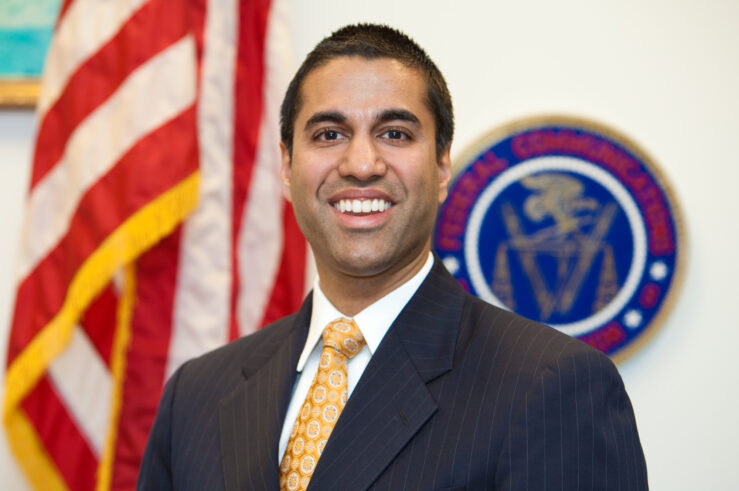Showing results for: “sirius xm merger”
International Competition Network (ICN) 2015 Annual Conference: A Higher Profile for Competition Advocacy
The ICN’s 14 Annual Conference, held in Sydney, Australia, from April 28th through May 1st, as usual, provided a forum for highlighting the work of ICN working groups on cartels, mergers, unilateral conduct, agency effectiveness, and advocacy. The Conference approved multiple working group products, including a guidance document on investigative process that reflects key investigative ... International Competition Network (ICN) 2015 Annual Conference: A Higher Profile for Competition Advocacy
FCC restrictions on joint sales agreements: Yet another FCC rule without basis in evidence or economics
Recently, Commissioner Pai praised the introduction of bipartisan legislation to protect joint sales agreements (“JSAs”) between local television stations. He explained that JSAs are contractual agreements that allow broadcasters to cut down on costs by using the same advertising sales force. The efficiencies created by JSAs have helped broadcasters to offer services that benefit consumers, ... FCC restrictions on joint sales agreements: Yet another FCC rule without basis in evidence or economics
The Ninth Circuit botched its efficiencies analysis in the FTC v St Lukes antitrust case
Earlier this week the International Center for Law & Economics, along with a group of prominent professors and scholars of law and economics, filed an amicus brief with the Ninth Circuit seeking rehearing en banc of the court’s FTC, et al. v. St Luke’s case. ICLE, joined by the Medicaid Defense Fund, also filed an ... The Ninth Circuit botched its efficiencies analysis in the FTC v St Lukes antitrust case
Debunking the Myth of a Data Barrier to Entry for Online Services
Recent years have seen an increasing interest in incorporating privacy into antitrust analysis. The FTC and regulators in Europe have rejected these calls so far, but certain scholars and activists continue their attempts to breathe life into this novel concept. Elsewhere we have written at length on the scholarship addressing the issue and found the ... Debunking the Myth of a Data Barrier to Entry for Online Services
FTC Staff Report on Google: Much Ado About Nothing
The Wall Street Journal reported yesterday that the FTC Bureau of Competition staff report to the commissioners in the Google antitrust investigation recommended that the Commission approve an antitrust suit against the company. While this is excellent fodder for a few hours of Twitter hysteria, it takes more than 140 characters to delve into the ... FTC Staff Report on Google: Much Ado About Nothing
California Dreamin’: California Public Utility Commission must resist extreme regulatory overreach in the recently proposed conditions in Comcast-TWC merger
On February 13 an administrative law judge (ALJ) at the California Public Utility Commission (CPUC) issued a proposed decision regarding the Comcast/Time Warner Cable (TWC) merger. The proposed decision recommends that the CPUC approve the merger with conditions. It’s laudable that the ALJ acknowledges at least some of the competitive merits of the proposed deal. ... California Dreamin’: California Public Utility Commission must resist extreme regulatory overreach in the recently proposed conditions in Comcast-TWC merger
In Memoriam: Henry G. Manne (1928-2015)
Henry Manne was a great man, and a great father. He was, for me as for many others, one of the most important intellectual influences in my life. I will miss him dearly. Following is his official obituary. RIP, dad. Henry Girard Manne died on January 17, 2015 at the age of 86. A towering figure ... In Memoriam: Henry G. Manne (1928-2015)
Heritage Foundation January 29 Conference on Obama Administration Antitrust Enforcement Record
During the 2008 presidential campaign Barack Obama criticized the Bush Administration for “the weakest record of antitrust enforcement of any administration in the last half century” and promised “to reinvigorate antitrust enforcement.” In particular, he singled out allegedly lax monopolization and merger enforcement as areas needing improvement, and also vowed “aggressive action to curb the ... Heritage Foundation January 29 Conference on Obama Administration Antitrust Enforcement Record
Challenging Anticompetitive Government Action, in Light of Constitutional Constraints on U.S. Antitrust Law
On December 11 I published a Heritage Foundation Legal Memorandum on this topic. I concluded that the federal courts have done a fairly good job in harmonizing antitrust with constitutionally-based federalism and First Amendment interests (petitioning, free speech, and religious freedom). Nevertheless, it must be admitted that these “constitutional constraints” somewhat limit the ability of ... Challenging Anticompetitive Government Action, in Light of Constitutional Constraints on U.S. Antitrust Law
Spicy Documents Serve up a Paltry Antitrust Meal
There is always a temptation for antitrust agencies and plaintiffs to center a case around so-called “hot” documents — typically company documents with a snippet or sound-bites extracted, some times out of context. Some practitioners argue that “[h]ot document can be crucial to the outcome of any antitrust matter.” Although “hot” documents can help catch ... Spicy Documents Serve up a Paltry Antitrust Meal
Why a Common Law Approach to Defining “Unfair Methods of Competition” Won’t Work
Section 5 of the Federal Trade Commission Act proclaims that “[u]nfair methods of competition . . . are hereby declared unlawful.” The FTC has exclusive authority to enforce that provision and uses it to prosecute Sherman Act violations. The Commission also uses the provision to prosecute conduct that doesn’t violate the Sherman Act but is, ... Why a Common Law Approach to Defining “Unfair Methods of Competition” Won’t Work
Antitrust Enforcement in Reverse: Getting Efficiencies Backwards
A century ago Congress enacted the Clayton Act, which prohibits acquisitions that may substantially lessen competition. For years, the antitrust enforcement Agencies looked at only one part of the ledger – the potential for price increases. Agencies didn’t take into account the potential efficiencies in cost savings, better products, services, and innovation. One of the major ... Antitrust Enforcement in Reverse: Getting Efficiencies Backwards






